
Once thought to be a Southern soybean disease, frogeye leaf spot has marched across the U.S. over the past 30 years. Now seen reaching as far north as North Dakota, the disease can cause up to 35% yield loss in certain circumstances.
In 2015, Iowa State reported 17.5 million bushels of yield lost nationwide to frogeye leaf spot. Its growing resistance to popular fungicide options makes the disease even more concerning.
“It’s one of the most economically significant diseases of soybeans across the nation,” says Alex Schaffer, a research agronomist for the Iowa Soybean Association. “Resistance outbreaks to fungicide started in the South and have moved across the soybean-producing states.”
Disease life cycle and optimal conditions
The fungus Cercospora sojina causes frogeye leaf spot. While most seed treatments kill seed-borne contamination, the fungus can survive on soybean residue, leading to infections following rainfall.
“Once we get an infection on the leaf, more spores will be produced from that spot,” says Marty Chilvers, a plant pathology professor at Michigan State University. “That can lead to development of the disease, and it will potentially go through multiple cycles in a season.”
Severity depends highly on weather conditions. Heat and humidity, especially in July and August, as soybeans flower and pods develop, can greatly exacerbate the disease.
Extended wetness on leaves opens the door to infection. Dew-prone fields, such as those in valleys or protected by trees, are particularly susceptible.
Infections start as lesions on the soybean canopy. In severe cases, spots can also be found on stems and pods.
This story is from the August 2024 edition of Successful Farming.
Start your 7-day Magzter GOLD free trial to access thousands of curated premium stories, and 9,000+ magazines and newspapers.
Already a subscriber ? Sign In
This story is from the August 2024 edition of Successful Farming.
Start your 7-day Magzter GOLD free trial to access thousands of curated premium stories, and 9,000+ magazines and newspapers.
Already a subscriber? Sign In
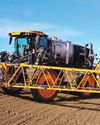
Hagie's Sprayer, Built With Deere Tech
The Hagie STS16 with 120-foot boom comes factory-installed with John Deere See and Spray Premium.
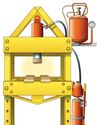
No-Spring Hydraulic Press
Air-return shop press makes for easier positioning.

The Disappearing American Farmer
A new book examines this trend and how it can be stopped.

60-Year Partnership Still Going Strong
Gil Tinsey and Fred Hasen met in college and have been farming together in Michigan since the 1960s.
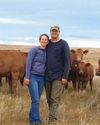
A NewGeneration Farm
Regenerative agriculture spurs growth at Sather Farm and Ranch.

Yields Increase With Lime
Managing soil pH could increase crop production.
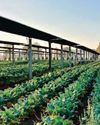
Solar Harvest Coming to a Field Near You
More research and work is being done to expand the use of agrivoltaics in North America.

The Cost of Leadership
When parents won't make decisions, it’s difficult for farming heirs to set goals.

The Power of Artificial Intelligence
How animal agriculture is reaping the benefits of Al.
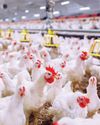
Shutdown
lowa plant is first casualty in USDA meat processing initiative.